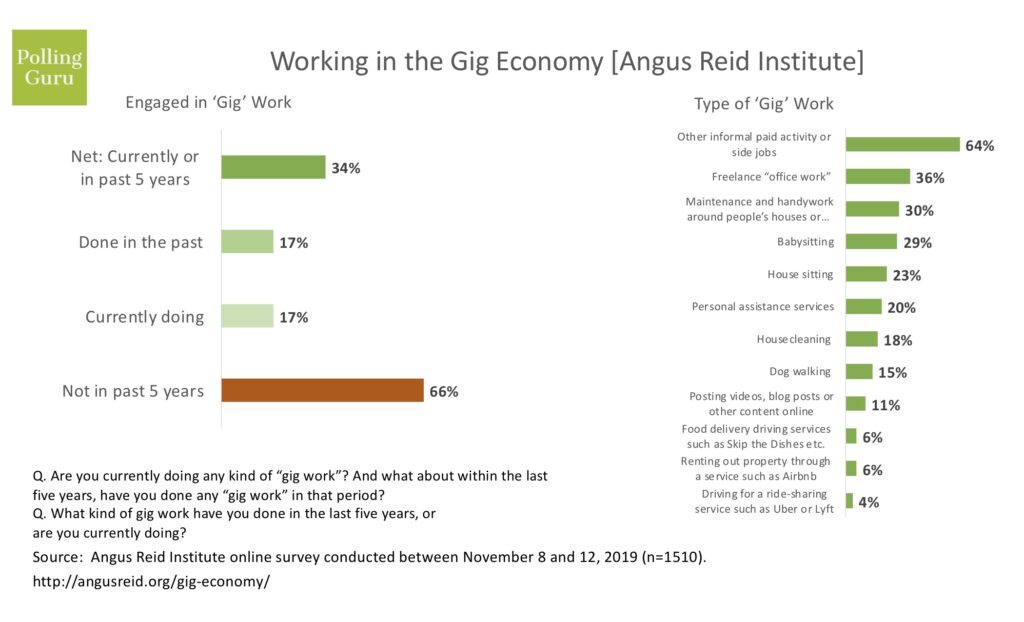The ‘gig’ economy is not new. Informal work arrangements have always been part of the economy. What is new, is the sense that informal work arrangements have increased and become central to the operation of the economy. A recent Angus Reid Institute survey sheds some light on informal work arrangements. Canadians are divided about the impact of informal work. Many are unsure of its total impact. And it turns out, that the size of the gig economy is probably not as large as we think.
An amazing 17% of Canadians report currently working at some kind of ‘gig’ work. One in three have done so in the previous 5 years. Two thirds of Canadians are not impacted by this type of work. Young people (under 34 years) are the most likely to have done ‘gig’ work (44% in the past 5 years).
This gives us the idea that young people are choosing informal work because they are not finding satisfying full-time work elsewhere or making a lifestyle choice. That is, there is something attractive about the ‘gig’ economy. This may or may not be the case.
Consider the types of ‘gig’ work being reported. Unfortunately, 64% of those who reported doing some informal work over the past 5 years only report “other informal paid activity or side jobs.” Are people reporting gig work because they are holding more than 1 job? It turns out that 29% of employed Canadians in the survey have more than one job.
And, it happens that some of the most culturally relevant gig work like driving a ride sharing car are not common. Most common are freelance office work and maintenance and handywork. Many of the ‘gig’ jobs are babysitting and house sitting. Like dog walking, these are more common among young people. Much of what looks like young people engaged in a different economy is really them reporting earning income from traditional informal economy activities. And, these activities have probably always been more prominent among younger people.

In many ways, informal, ‘gig’ economy work is not new. Consider that 73% say that they found their clients or customers by way of work-of-mouth.
Final thoughts
Is this a picture of a new economy or more of the same? Arguably, young people have always been more involved in getting paid for informal work. Without tracking information it is impossible to determine if this is new or not. But, we need to be conscious that from a measurement perspective, the gig economy means different things. It is not simply the evolution of the economy in a new direction. It is as much about people needing to make ends meet.
Source: Anguis Reid Institute survey conducted between November 8 and 12, 2019 (n=1510).
Photo by Mimi Thian on Unsplash

